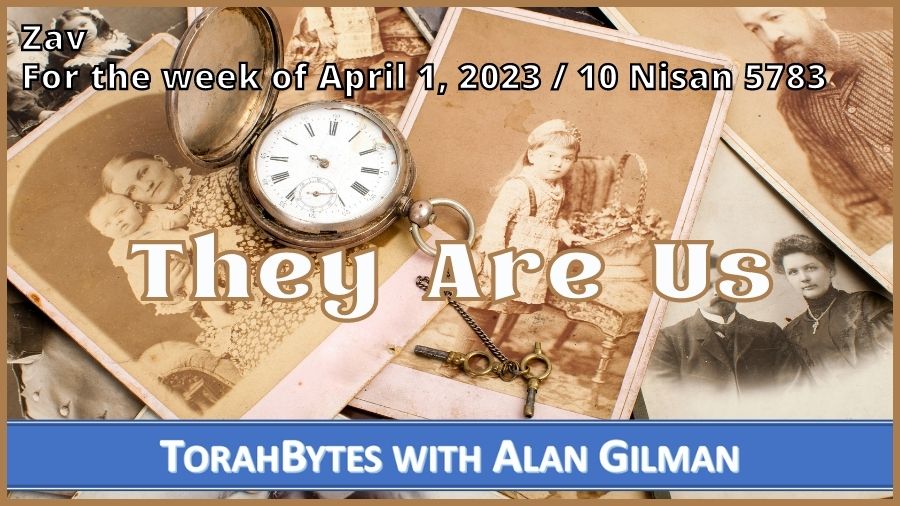For the week of April 1, 2023 / 10 Nisan 5783

Download Audio [Right click link to download]
Zav
Torah: Vayikra/Leviticus 6:1-8:36 (English 6:8 – 8:36)
Haftarah: Malachi 3:4-24 (English: 3:4 – 4:6)
And he will turn the hearts of fathers to their children and the hearts of children to their fathers, lest I come and strike the land with a decree of utter destruction. (Malachi 3:24 [English 4:6])
As is my custom, I prepare TorahBytes each week by looking at both the weekly Torah and Haftarah (excerpt from the Prophets) portions. In more recent years, I also tend to look back at my previous messages based on these portions. The last time I commented on the portion from the end of Malachi, was the week of April 4, 2020. The first set of significant COVID measures, including lockdowns and social distancing, began in most places a couple of weeks prior. Here are a few excerpts from that message:
We are in sobering times. Most of us alive today have never seen a global pandemic nor have had to endure such drastic measures. Time will tell whether or not the restrictions imposed upon us are justified…We don’t know what the world will be like when this is over…People’s value systems will be transformed…Are we prepared? Are we prepared to face death? Are we prepared to face life?…The pressures of coping with COVID-19 personally and relationally are driving us individually and societally to a tipping point.
At that time, I asserted that the generational division had already been in place long before this crisis undermined our societal foundations, making dealing with COVID far more difficult than it would have been had the family unit been stronger. But something else was also going on unrelated to COVID: an all-out attack on the past.
The present can certainly be helpful in shining light on the past. Yet, it’s one thing to experience regret for our personal or communal wrongs. But it’s quite another to mercilessly attack it. We have become too quick to condemn the actions of the past based on our supposed enlightened perspective. God’s warning through Malachi speaks powerfully to the current moment. He said that unless the hearts of the fathers turn toward the children and vice versa, God would “come and strike the land with a decree of utter destruction.” In other words, the survival of society depends on the healing of the generation gap.
Not only has the generation gap widened in the past few years, the very nature of the gap has changed. What began as a difference of opinion between adults and young people amidst the turbulent 1960s, is now a violent disdain for the actions of generations of the distant past. What had been a critique of cultural values has become a rage over long-ago events to the extent that their very memories are being wiped out of existence.
What is perhaps the most insidious aspect of this so-called social justice movement is the practical denial that the current generation are the descendants of our forebears. When we condemn them, we don’t realize how much we condemn ourselves. Assuming that the current generation possesses sufficient moral superiority, qualifying them to sit in judgment over the past, exposes a complete lack of self-awareness. Today’s social justice warrior types forget that we share the same humanity, in all its glory and brokenness, as those who came before. So, instead of owning the inheritance of past wrongs and working toward a better future, all that is gained is a sense of pride in one’s self-proclaimed moral superiority. To be so out of touch with one’s own nature can only lead to greater trouble. It’s only by recognizing that we are made of the same stuff as our ancestors can we find any resolution to the pain we feel for the social ills that have plagued humanity from the beginning. It’s when we see ourselves in the faces of the past that we can effectively address the ills of the present. But when we distance ourselves from our ancestors, we distance ourselves from ourselves.
This is why we need to heed the prophetic call to turn our hearts to our fathers. This may be our literal fathers or our historical and cultural ones. A thought: I wonder how many people who are enraged over great social ills of the distant past are also enraged at their own dads. These may be related. Be that as it may, the warning through Malachi is as relevant today as it was when it was first delivered. If the generational divide is not healed, we are in big trouble.
Scriptures taken from the English Standard Version unless otherwise indicated


